world religions - hinduism
1/54
There's no tags or description
Looks like no tags are added yet.
Name | Mastery | Learn | Test | Matching | Spaced |
|---|
No study sessions yet.
55 Terms
latin religio
"bind and connect again"
"worship again"
"read again"
"carefully ponder again"
world religion
experience and convictions succeed in organizing
are religions monolithic
no
religion populations
christians = 2.1 mill
muslims = 1.5 mill
unaffiliated = 1.1 mill
hinduism = 1 mill
buddhism = 400,000
myth
a story that tries to communicate truths that history cannot
western (trickster, evil, sexual desire, death) vs. eastern (fertility, rebirth, healing, immortality, wisdom)
sanatana dharma
other name for hinduism
means eternal religion
deva/devi
god/goddess
33 primary devas (in vedas) or 330 million or 1 (brahman)
vedas
collection of ancient sacred texts that form the foundation of hinduism. written in sanskrit.
cosmic triad
brahman, shiva, vishnu
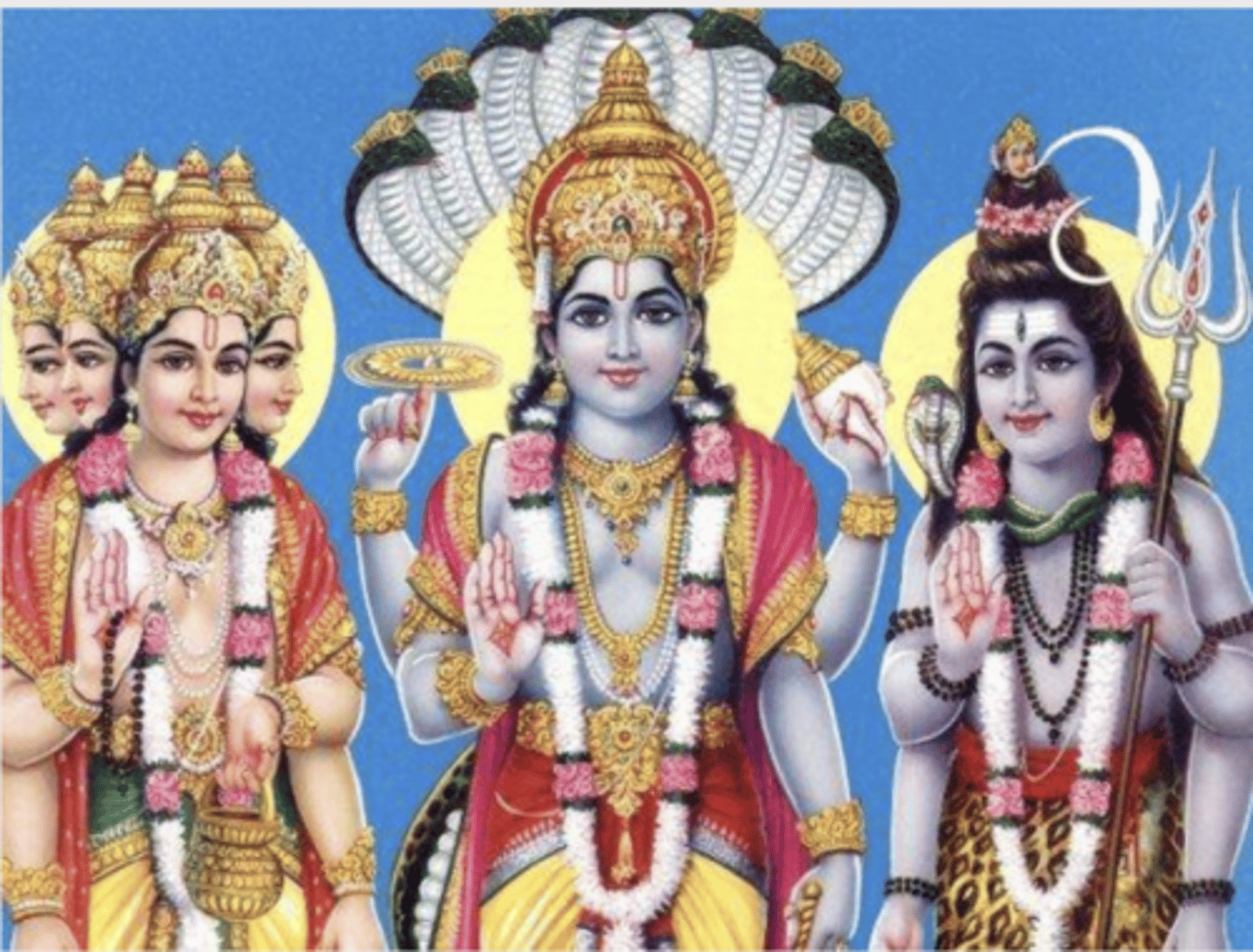
indus valley civilization
-flourished 1300-1500 BC near indus and saravati rivers
-5 mill inhabitants
-large central baths
-advanced sewer systems
-many terracotta pots, seals, female figurines
-no weapons
mahadevi
"great goddess"
shakti
active creative power and is feminine. shaktism is the worship of the goddess
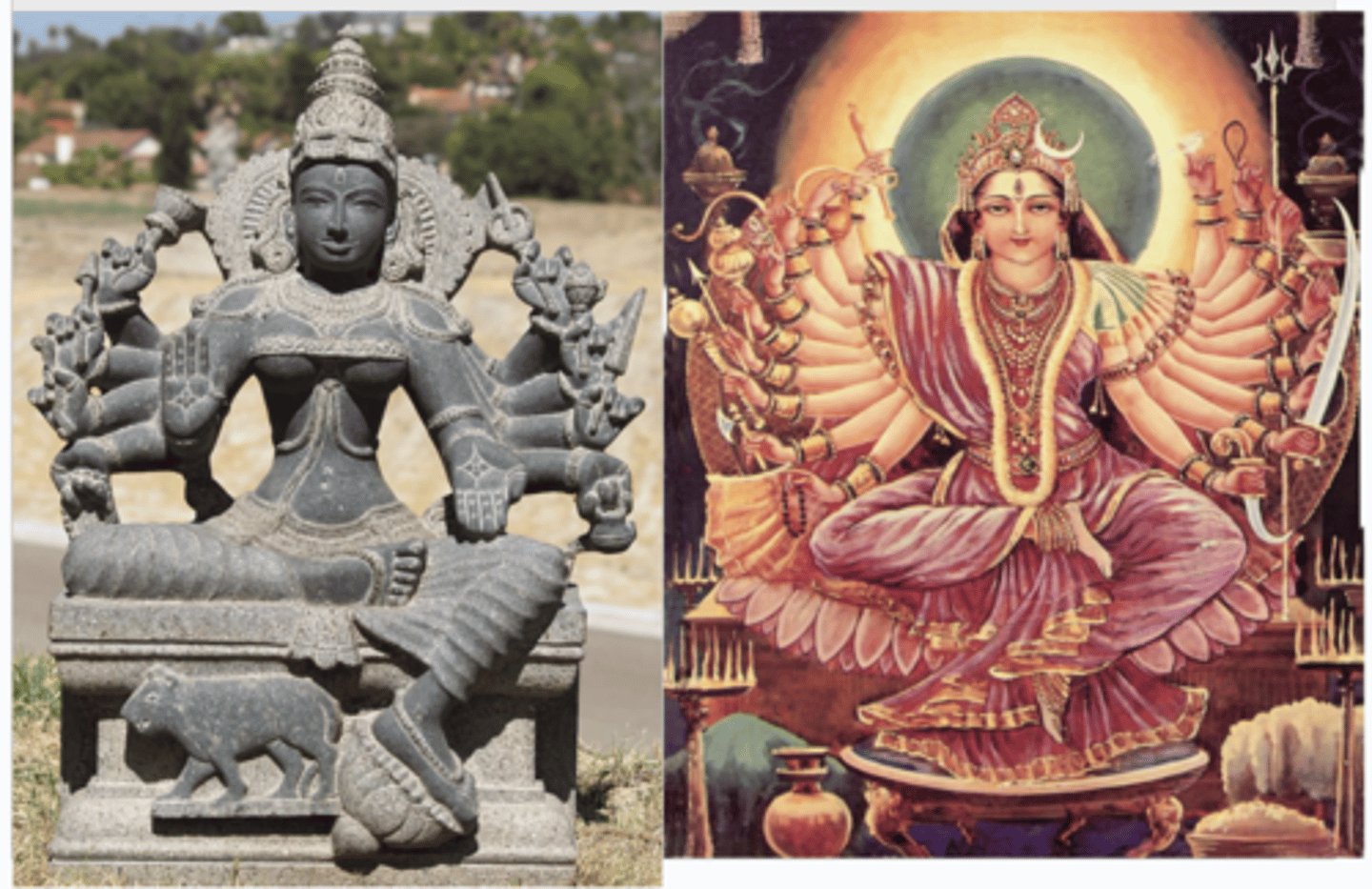
sarasvati
goddess of learning, wisdom, music, and aesthetics.
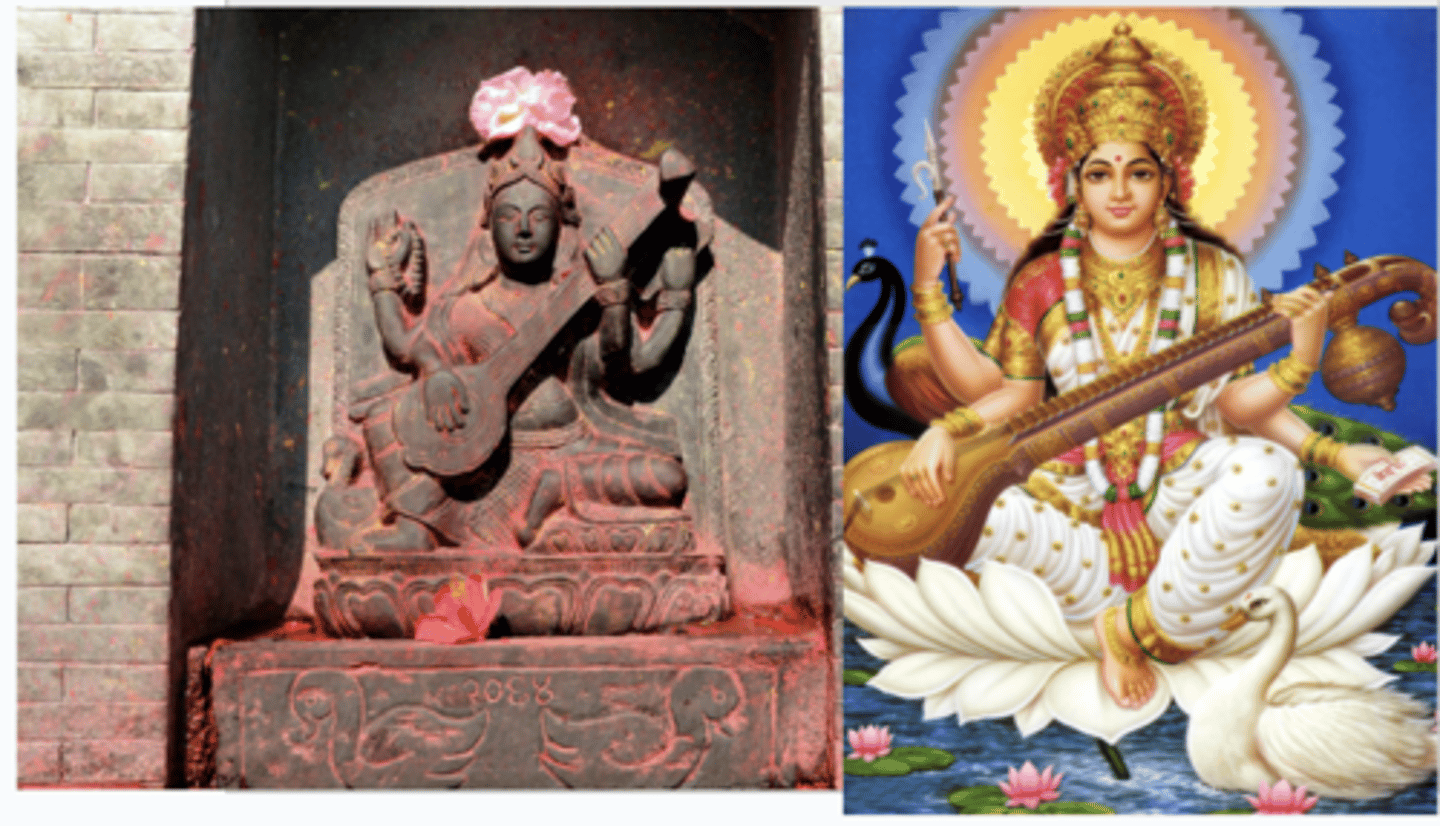
parvati
wife of shiva
goddess of love, fertility and devotion
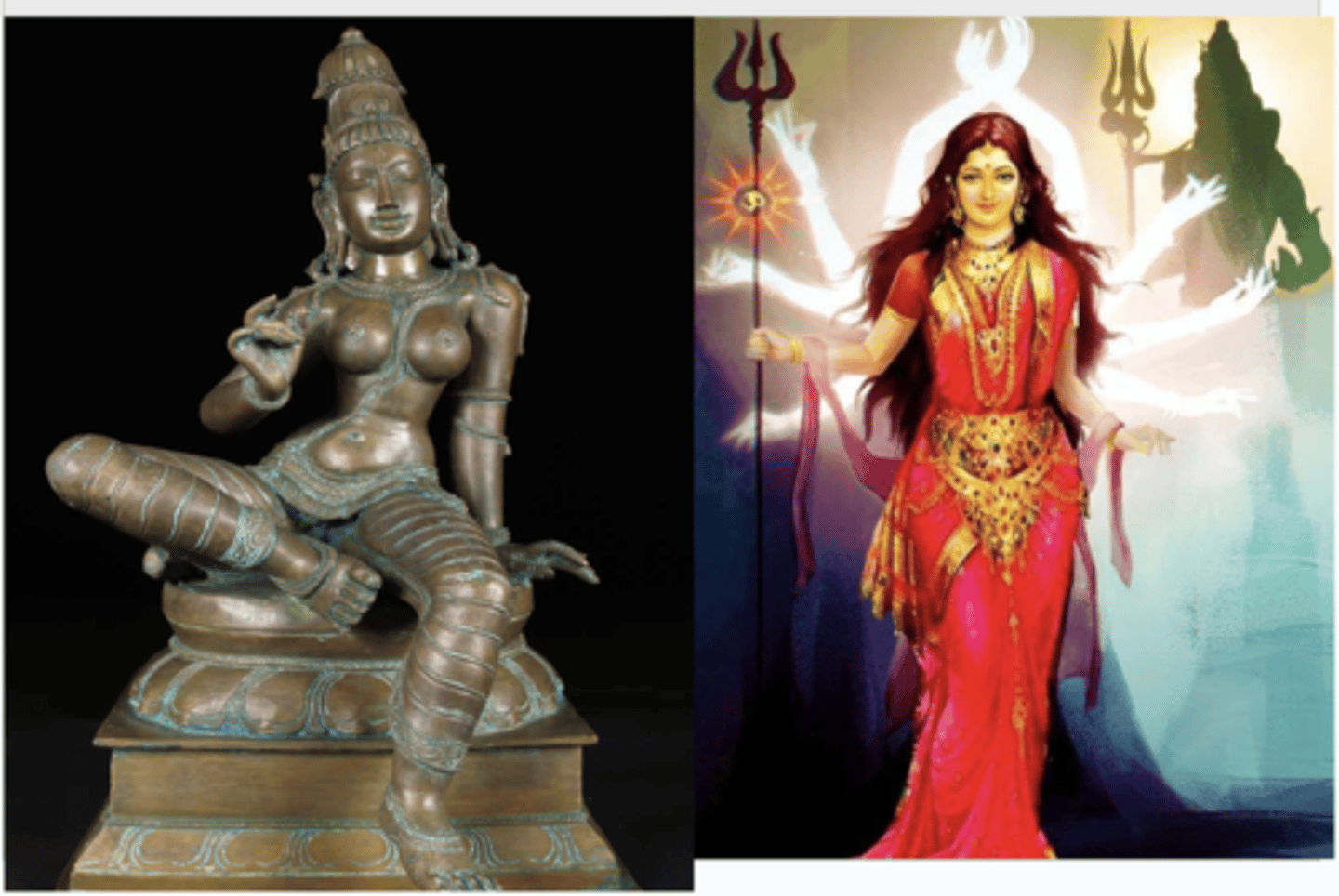
durga
goddess known for strength and warrior attributes.
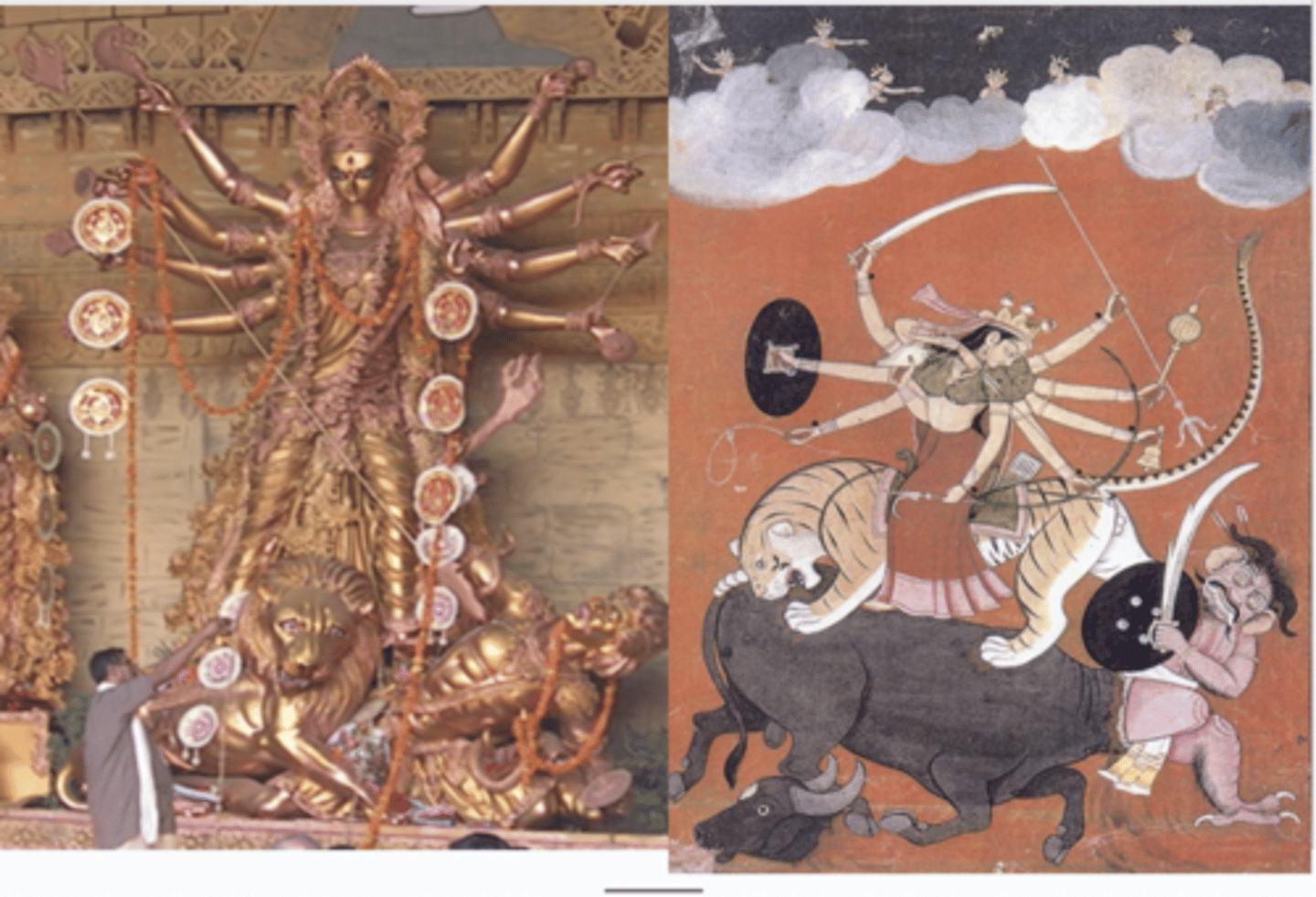
kali
-goddess of death/destoryer of evil forces
-name derivied from "she who is death" of "she who is black"
-one that can kill death

ganga
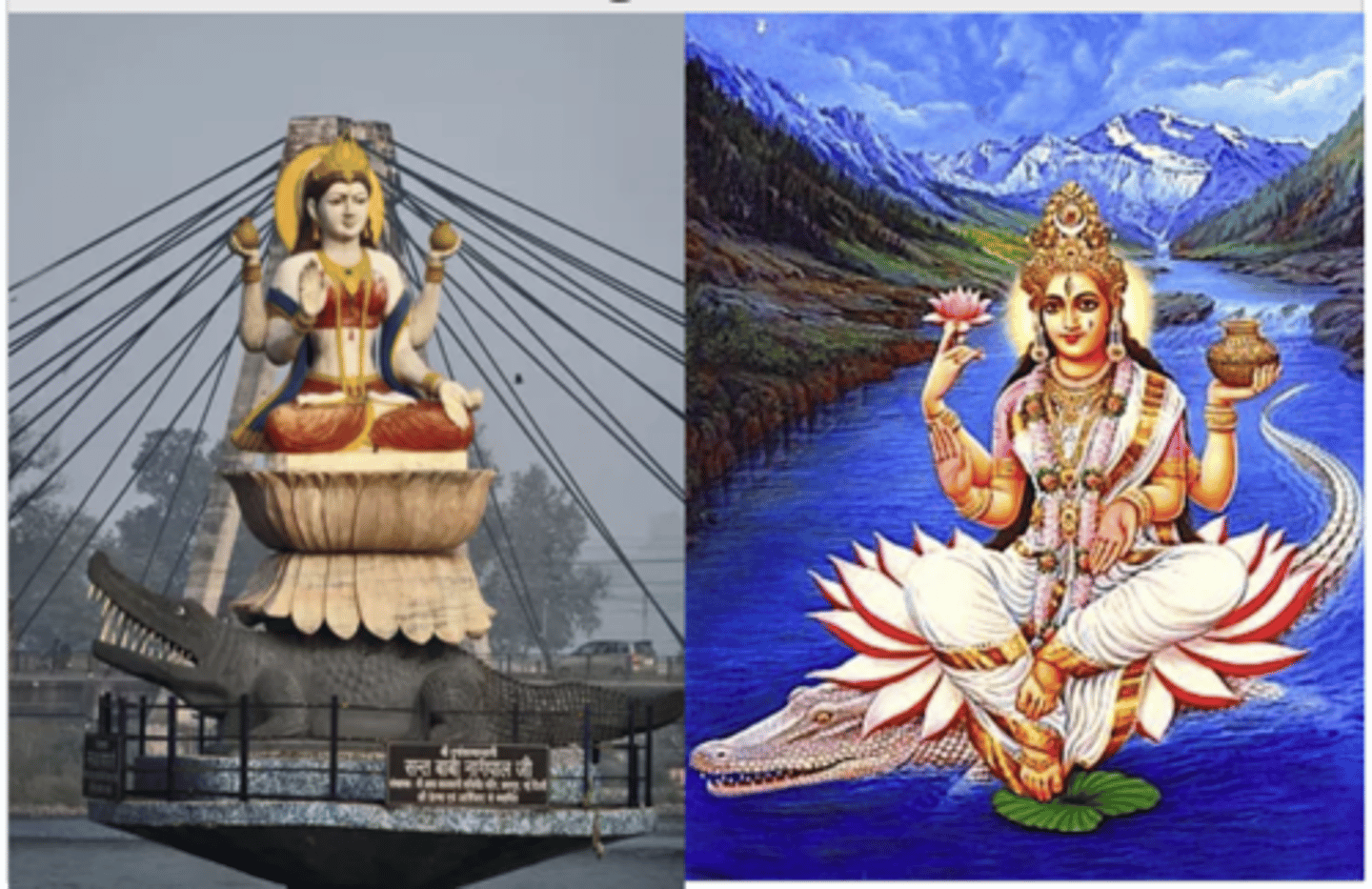
river ganges
sacred river, believed to purify the soul.
-where you would want to die if you were hindu
shiva
-"auspicious one"
-associated with creation
-mt. kailash
-devi of destruction
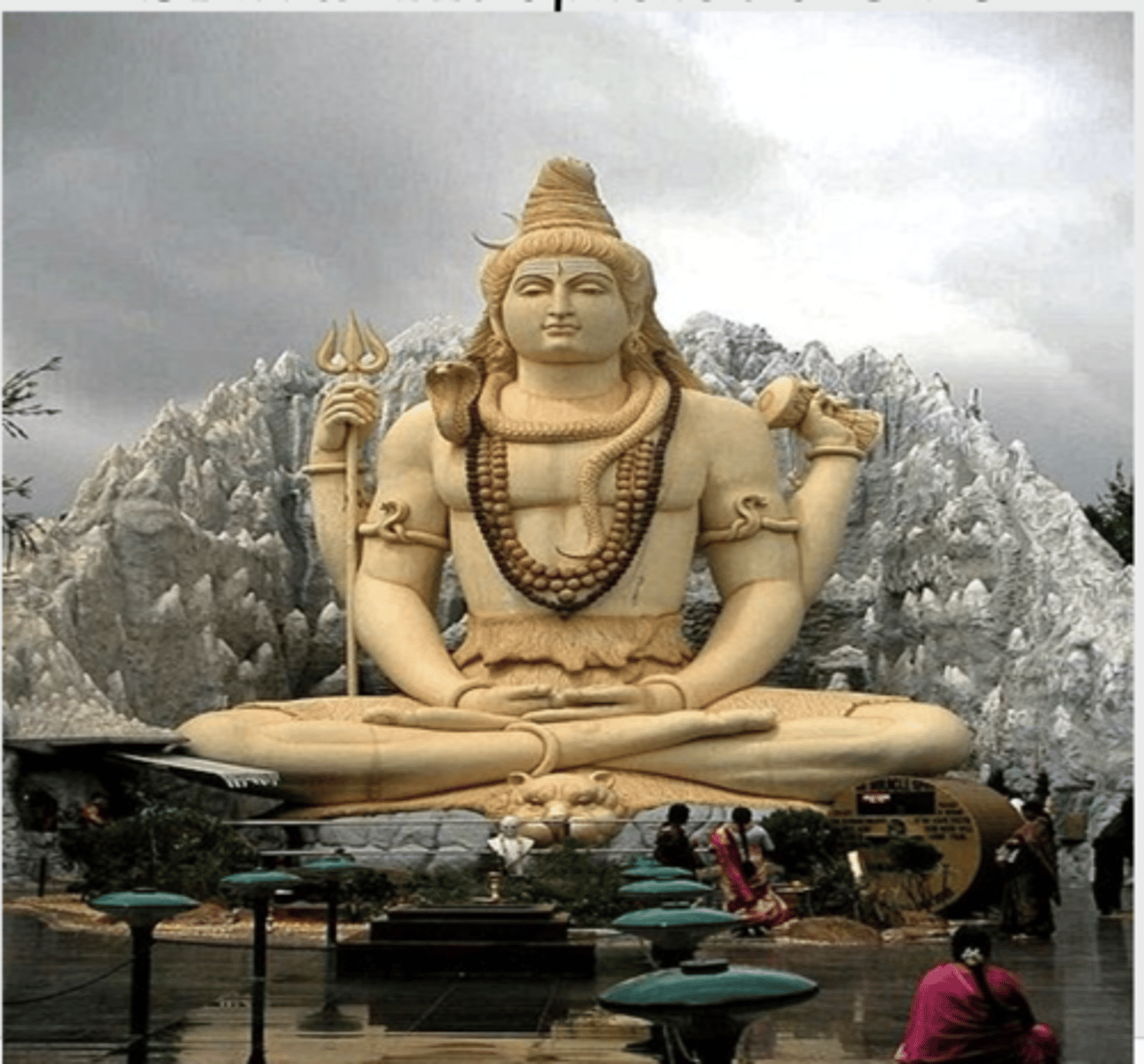
lingham and yoni
represent marraige of shiva and paravati
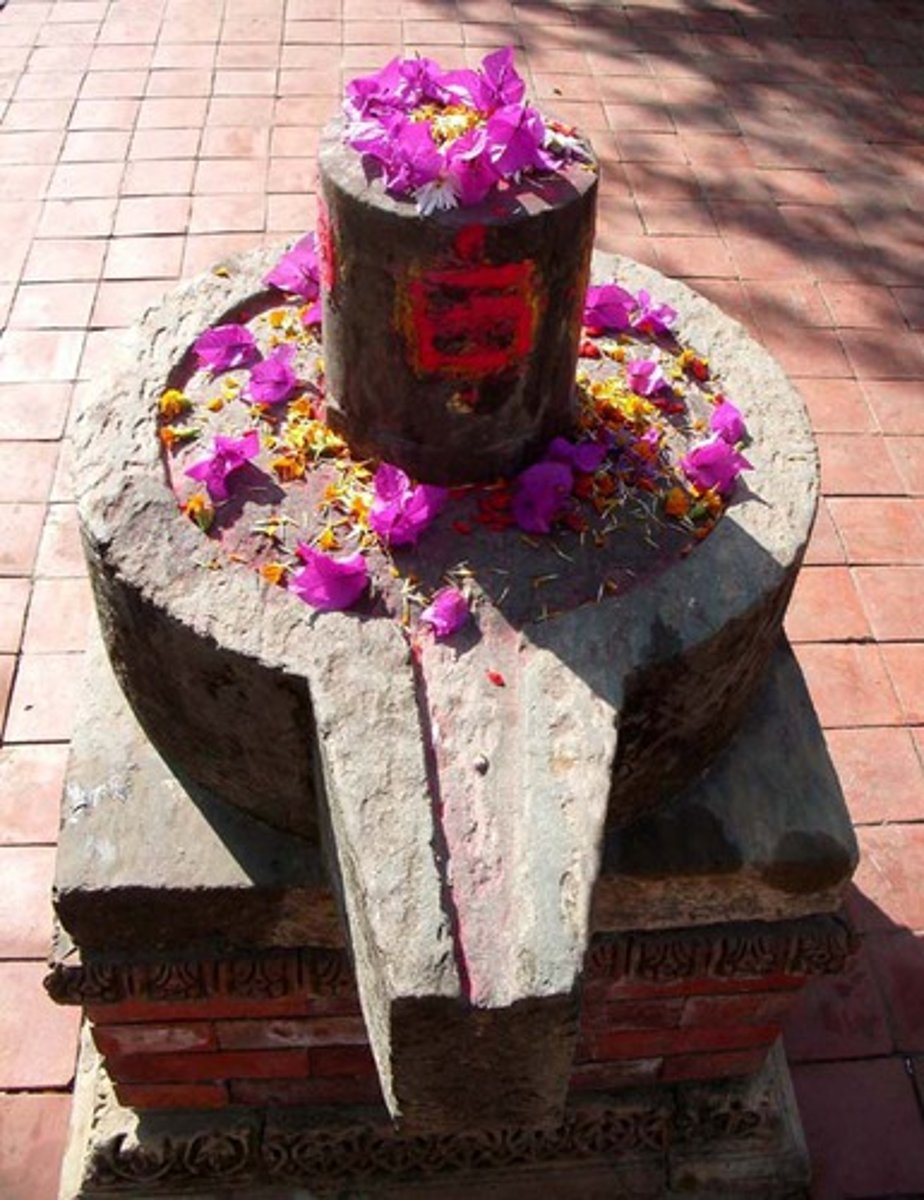
mantras
chants, hymns, rituals,
caste system
system to seperate social classes
1. brahmins - priests and scholars
2. kshatriyas - warriors and royalty
3. vaishyas - marchants and farmers
4. shudras - people of the land
agni
god of fire
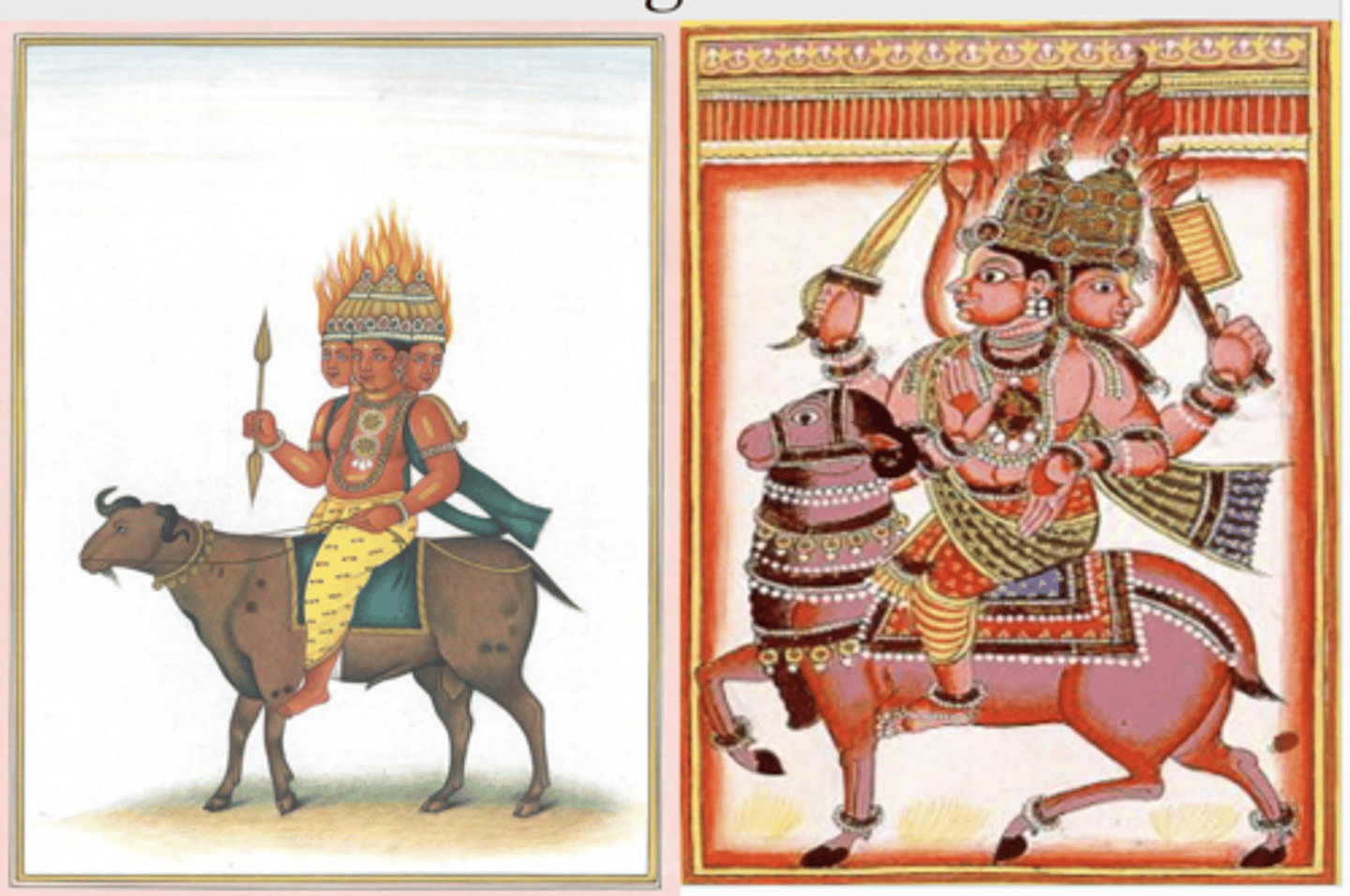
puja
worship
darshan
the movement of the flame that allows you to be in the presence of the deity (wipes away the maya)
maya
concept of illusion
upanishads
-"to sit down beside"
-philosophical and speculative scripture which shifted concerns from rituals to understanding the self and reality
-emphasizes critical thought on brahman
yoga
"to yoke"
"to join/attach"
"to discipline"
"the way"
moksha
release or liberation from samsara. to live in blissful communion with the divine
samsara
-cycle of birth, death and rebirth
-wandering, transmigration of soul through time
karma yoga
"way of action" selfless duty
-if you live a good life, you will be rewarded in your next life
jnana yoga
"way of wisdom"
dhyana yoga
"way of meditation"
bhakti yoga
"way of devotion" love
-offers food to lord krishna, prays mantras. (shows devotion)
karma
the law of justice
1. attending to ones duties
2. the stages of life
3. attending puja
atman
the self or soul
brahman
the ultimate power or mystery
hanuman
-represents devotion to vishnu
-monkey
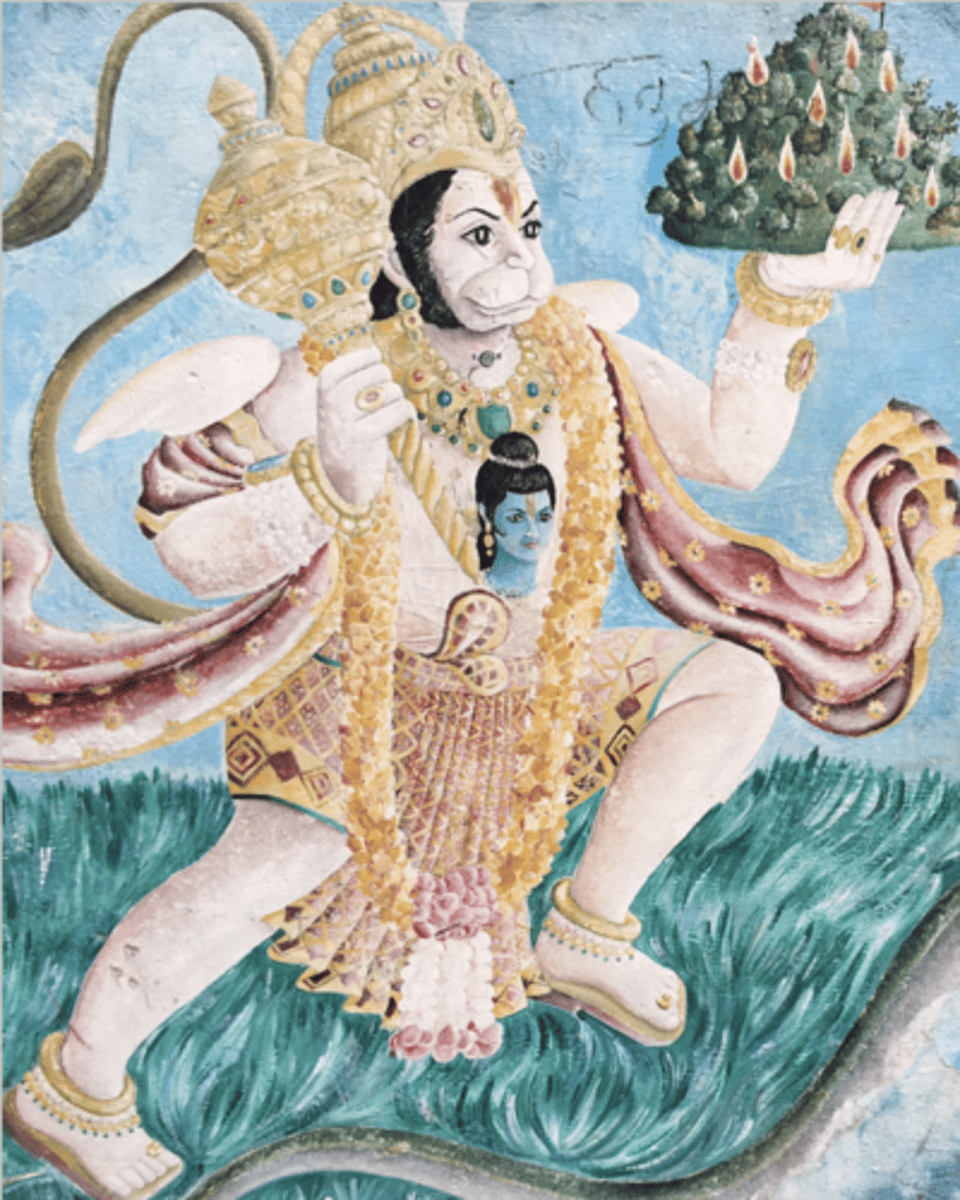
mahabharata
the longest single poem in the world, about a war fought between two branches of the same family. One of India's greatest epics written between 1000 and 700 BC
vishnu
preserves and sustains the world
bhagavad gita
"song of the lord"
indus river
first traces of hinduism can be dated to around 2500 BC on the banks of the indus river.
forms of the mother goddess
the earliest gods who worshipped at the cities of harappa and mohenjo-daron
bindi
-for decoration, style, and marriage
-to represent the third eye of enlightenemnt and wisdom
-dot on forehead (type of tilak)
tilak
-shows their denomination
ganesha
shiva and paravatis son
avatar
literally "to descend into"
om
first sound of the universe and embodies brahman and all creation
saivism
focuses on worship of lord shiva
shaktism
worship of goddess shakti
krishna
The 8th avatar of Vishnu. Main character of the Bhagavad Gita. The most popular incarnation of Vishnu
lakshmi
goddess of wealth and prosperity
vaishnavism
worship of vishnu
arjuna
(Hindu mythology) the warrior prince in the Bhagavad-Gita to whom Krishna explains the nature of being and of God and how humans can come to know God
namaste
greeting or salutation